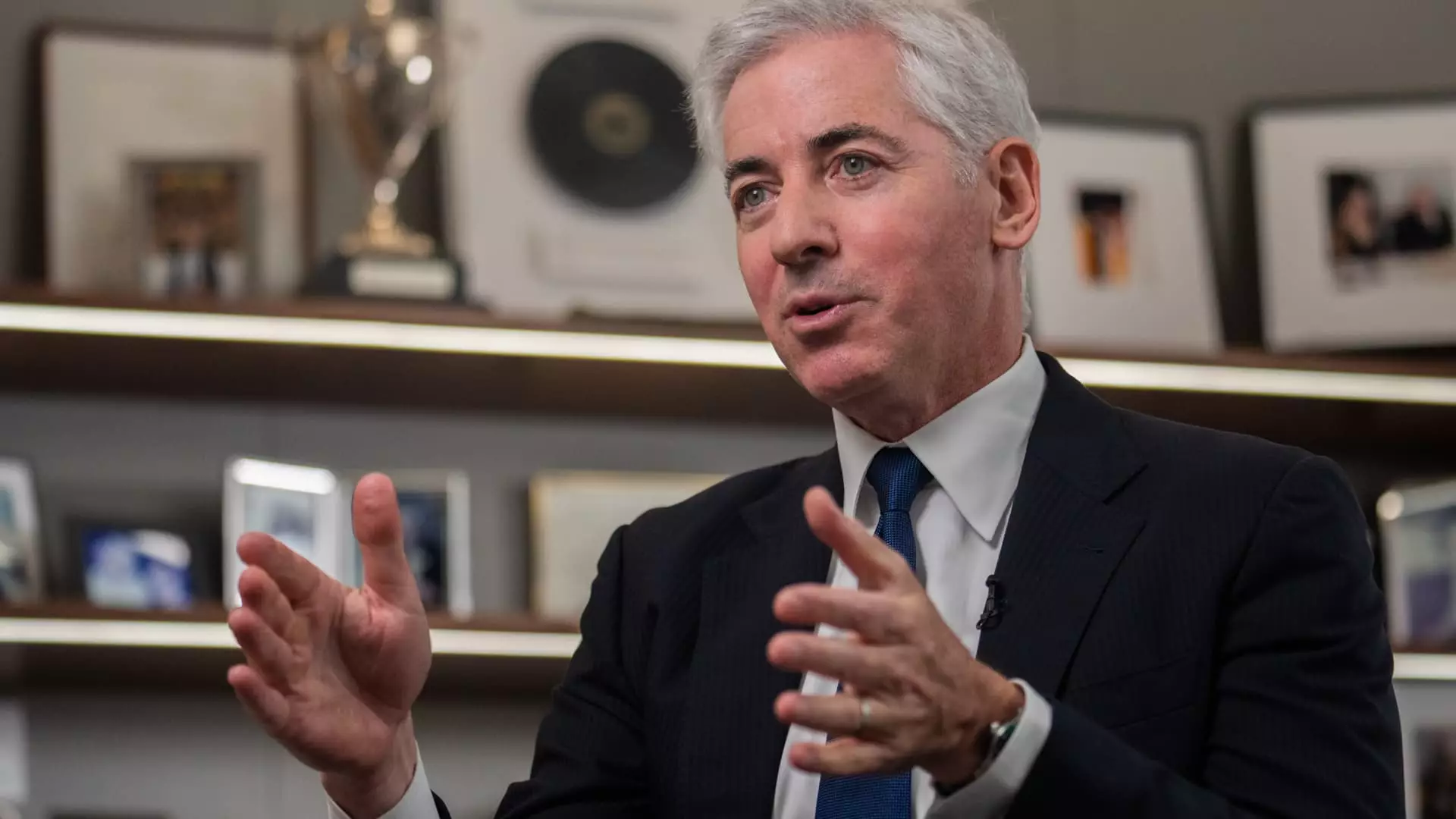Bill Ackman, the prominent billionaire investor and chief of Pershing Square Capital Management, has made headlines with a bold move to acquire Howard Hughes Holdings (HHH). His latest proposal seeks to elevate the real estate development firm into a “modern-day” version of Berkshire Hathaway. In a strategic pivot, Ackman has increased his offer to purchase 10 million newly issued shares at $90 each, a notable jump from his earlier offer of $85 per share made earlier this January. If successfully executed, this transaction could position Pershing Square as the dominant stakeholder, controlling a substantial 48% of HHH.
A significant advantage of Ackman’s revised proposition is that it bypasses the necessity for regulatory approvals, shareholder votes, or complex financing arrangements. This streamlining promises a swift conclusion to the transaction in a matter of weeks. However, despite the intriguing nature of the deal, the market reacted negatively, with HHH shares dropping nearly 5% in after-hours trading following the announcement—a stark contrast to the 6.8% rise in anticipation of the news. Such fluctuations underline investors’ mixed sentiments regarding Ackman’s aggressive strategy.
Drawing an ambitious parallel to Warren Buffett, Ackman has expressed his vision of creating a diversified holding company similar to the one helmed by the “Oracle of Omaha.” Buffett’s iconic journey began as an activist investor before he took control of Berkshire Hathaway, previously a failing textile company, and transformed it into an investment behemoth valued at around $1 trillion today. In his communication, Ackman articulated a desire to replicate this transformational narrative with Howard Hughes, promising that the firm will continue its trajectory of developing large-scale, master-planned communities.
Acknowledging the potential for growth, Ackman stated that HHH will focus on owning and developing master-planned communities, which have proven successful in markets like Houston and Las Vegas. He believes that targeting burgeoning areas that can evolve into major cities presents a unique long-term investment opportunity. In his vision, this evolution aligns with his strategy of acquiring significant stakes in both private and public enterprises that align with high-quality business standards.
Ackman is set to assume leadership as chairman and CEO of Howard Hughes, promising to leverage the substantial resources of Pershing Square for its development. Additionally, he proposed a financial arrangement where Pershing Square would receive a fee of 1.5% based on Howard Hughes’ equity market capitalization, potentially ensuring a steady revenue stream.
In essence, Bill Ackman’s ambitious offer for Howard Hughes Holdings marks a significant bid to reshape the landscape of real estate development akin to that of Berkshire Hathaway. While the challenges ahead—including market skepticism and the need for effective execution—remain, Ackman’s fervent vision, rooted in the success of Buffett, could herald a transformative era for Howard Hughes, attractive prospects for investors if executed with the acumen for which Ackman is known.

